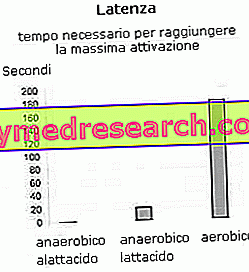
What is Epivir?
Epivir is a medicine containing the active substance lamivudine. The medicine is available in rhomboid-shaped tablets (white tablets: 150 mg; gray tablets: 300 mg) and in an oral solution (10 mg / ml).
What is Epivir used for?
Epivir is an antiviral drug. It is used in combination with other antiviral medicines to treat adults and children with human immunodeficiency virus (HIV) infection, the virus that causes acquired immunodeficiency syndrome (AIDS).
The medicine can only be obtained with a prescription.
How is Epivir used?
Epivir therapy should be started by a doctor who has experience in managing HIV infection.
The recommended dose of Epivir for patients over 12 years is 300 mg a day. This can be given once a day (two 150 mg tablets or one 300 mg tablet) or one 150 mg tablet twice a day. In children weighing more than 30 kg, the adult dose of 150 mg twice a day should be given. In children, with a weight between 14 and 30 kg, the dose varies according to body weight. In children over three months of age, weighing less than 14 kg, the oral solution is recommended at a dose of 4 mg per kilogram of body weight twice a day, up to a maximum of 300 mg a day.
It is recommended to swallow the tablets whole. In subjects who are unable to swallow the whole tablets, it is preferable to administer the oral solution or crush the tablets and add them to a small amount of food or drink, immediately before taking the dose.
The dose of Epivir should be changed in patients with severe renal impairment. You can use the oral solution to get the proper dose. Epivir can be given with or without food.
For more information, see the package leaflet.
How does Epivir work?
The active substance in Epivir, lamivudine, is a nucleoside reverse transcriptase inhibitor (NRTI). It blocks the action of reverse transcriptase, an enzyme produced by HIV through which it infects cells and develops other viruses. Epivir, taken in combination with other antiviral medicines, reduces the amount of HIV in the blood and keeps it at a low level. Epivir not
treats HIV infection or AIDS; however it can delay the damage to the immune system and the appearance of other infections and complications associated with AIDS.
How has Epivir been studied?
Five main studies on Epivir involving almost 3, 000 adults were conducted. In four of these studies, Epivir was compared with zidovudine (another antiviral drug) with Epivir or zidovudine alone, or with the combination of Epivir and zalcitabine (another antiviral medicine). These studies examined the effects of Epivir on HIV blood levels (viral load) and the number of CD4 T cells in the blood (CD4 cell blood count). CD4 T cells are a type of white blood cell that play an important role in fighting infections but are killed by HIV.
The fifth study compared the effects of adding Epivir or placebo (a dummy treatment) to current HIV infection therapy on 1, 895 adults treated with antiviral drugs for at least four weeks. The number of patients who developed a disease associated with AIDS or who died after a year of treatment was observed.
Epivir has also been studied in 615 children. The study compared the effects of Epivir taken with zidovudine compared to didanosine (another antiviral drug) taken alone, to calculate, then, how soon children developed an AIDS-related disease.
What benefit has Epivir shown during the studies?
In all studies it was found that Epivir used in combination is more effective than comparator drugs. In the first four studies in adults, Epivir, taken with zidovudine, was found to increase CD4 cell counts to a greater extent than comparison drugs after 24 weeks of treatment. It was also observed that, with this combination, viral loads were reduced in all studies after two to four weeks of treatment; this effect has, however, proved to be transient. In the fifth study in adults, the addition of Epivir to current therapy showed a reduction in the risk of disease progression and mortality: 128 (9%) of the 1 369 patients treated with Epivir developed an AIDS-related disease or are died, compared with 95 (20%) of the 471 patients treated with placebo. Similar results have been observed in HIV-infected children.
What is the risk associated with Epivir?
The most common side effects seen with Epivir (seen in between 1 and 10 patients in 100) are diarrhea, nausea, vomiting, headache, insomnia (difficult sleep), cough, nasal symptoms, rash, muscular disorders, arthralgia (pain in the joints), alopecia (hair loss), fever, abdominal pain or cramps, malaise and exhaustion (fatigue). For the full list of all side effects reported with Epivir, see the Package Leaflet.
Epivir must not be used in patients with severe liver disease or hypersensitivity (allergy) to lamivudine or any of the other components.
As with other anti-HIV drugs, patients taking Epivir may be exposed to the risk of lipodystrophy (redistribution of body fat), osteonecrosis (death of bone tissue) or immune reactivation syndrome (inflammatory symptoms triggered by the reactivation of the immune system). Patients who have liver problems (including hepatitis B or C infections) may face an increased risk of liver damage by taking Epivir. As with other NRTIs, Epivir can also cause lactic acidosis (an accumulation of lactic acid in the body) and, in children born to mothers who have taken Epivir during pregnancy, mitochondrial dysfunction (damage to the cellular components involved in energy production, due to possible blood problems).
Why has Epivir been approved?
The Committee for Medicinal Products for Human Use (CHMP) decided that Epivir's benefits are greater than its risks in antiretroviral combination therapy for the treatment of adults and children with HIV. The Committee therefore recommended that Epivir be given marketing authorization.
Initially the medicine was authorized in "exceptional circumstances"; since, for scientific reasons, the data available at the time of approval were limited. Since the manufacturer provided the additional information requested, the condition referring to "exceptional circumstances" was removed on 7 January 1998.
More information on Epivir:
On 8 August 1996, the European Commission granted a marketing authorization for Epivir, valid throughout the European Union, to Glaxo Group Limited. The marketing authorization was renewed on 8 August 2001 and 8 August 2006.
The full EPAR for Epivir can be found here
Last update of this summary: 09-2008.



